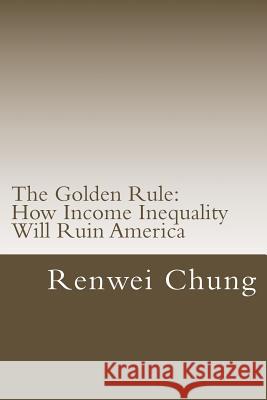The Golden Rule: How Income Inequality Will Ruin America » książka
The Golden Rule: How Income Inequality Will Ruin America
ISBN-13: 9781499173314 / Angielski / Miękka / 2014 / 36 str.
The rule of law in the United States is compromised when it has a disparate impact on low socioeconomic classes; promotes a supposed universal "war on drugs," but administers drug sentences unevenly; requires mandatory minimum sentencing for blue-collar crime, but negotiates monetary settlements for white-collar crime; sentences black men to nearly 20% longer terms than white men for similar crimes; prevents immigrants and indigent citizens from access to justice; and imprisons more of its population than any other country. For 40 years, Mr. Greenspan believed the financial markets could self-regulate. He has since admitted a flaw in his philosophy and no longer believes this ideology to be accurate. Many citizens of the United States have yet to realize the flaw in their model, which they perceive as the critical functioning structure of how America works. America has been built upon the premise that it is a land of equal opportunity. However, study after study is revealing statistics that directly counter this belief. The economic influence of inequality negatively impacts how the rule of law is administered in the United States. Economic inequality begets legal inequality. America's administration of the rule of law is not meant and should not be used to advance the cause of inequality. Unfortunately, America's income inequality is rising. There is a high correlation between income inequality and legal inequality in America. As citizens, we should seek to reduce this correlation coefficient because of the disturbing ramifications for the rule of law.
Zawartość książki może nie spełniać oczekiwań – reklamacje nie obejmują treści, która mogła nie być redakcyjnie ani merytorycznie opracowana.











